
Are you trying to collect data for your research project but need help determining the best approach? Data collection is an essential phase in the research process. In most cases, questionnaires and surveys are used to collect data. But what makes questionnaire vs survey different? No need to look any further! This blog post will explore the two most commonly utilized data collection methods.
Although the terms’ questionnaire’ and ‘survey’ are sometimes used interchangeably, they have several key distinctions that can affect the methods and results of research.
For researchers to select the best tool for their research objectives, it is critical to understand the differences between surveys and questionnaires. Purpose, sample size, timeline, complexity, etc. are all things to take into account while deciding between the two.
Researchers can improve their chances of collecting and evaluating data by choosing the right method in advance.
What is a Questionnaire?
Picture this: You’re handed a piece of paper with a list of questions, each neatly organized with multiple-choice answers. Congratulations! You’ve just encountered a questionnaire!
A questionnaire is a carefully designed list of questions typically distributed to a large population. The questions are usually designed to show specific information from participants and are often multiple-choice questions. You can give the participants a particular amount of time to complete questionnaires distributed online or on paper.
What is a Survey?
Imagine being handed a blank canvas and a set of paints and told to create a masterpiece. That’s what a survey can feel like – a blank slate for respondents to provide thoughtful responses.
Surveys have a more flexible approach of gathering data. They include a more comprehensive range of question types, including open-ended questions and ranking questions. You can also conduct surveys of smaller groups of people in person, over the phone, or online.
Like in a conversation, you can ask follow-up questions and go deeper into their comments. To understand this theory, let’s look at survey vs questionnaire examples.
Examples of Questionnaire Vs Survey
Now that you know the two, how can we further separate them?
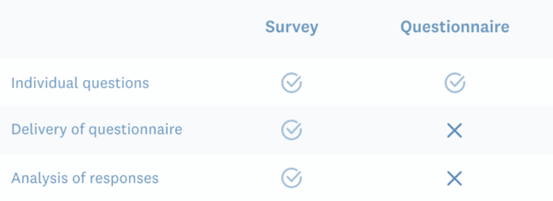
Here are some samples of a questionnaire vs survey so you can see what we mean:
Customer Satisfaction Questionnaire Vs Survey
Nowadays, you receive a customer satisfaction survey immediately after purchasing any product. It focuses more on particular areas of the customer experience, like usability, service quality, and customer assistance.
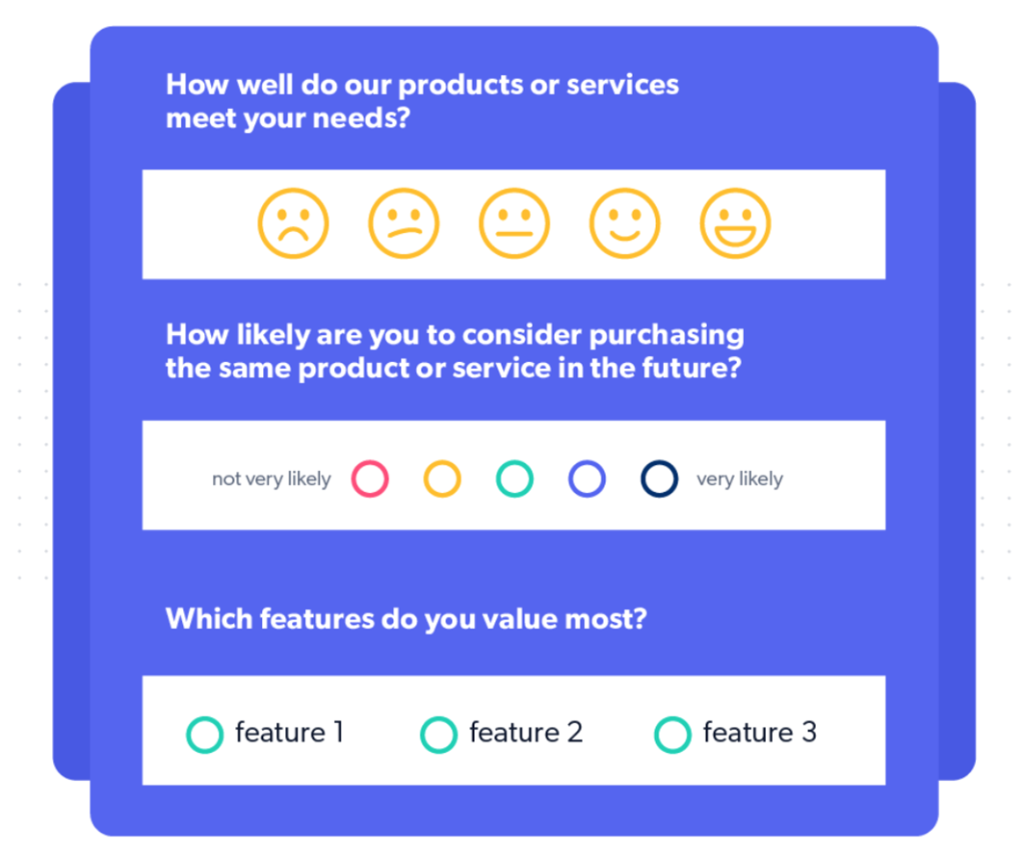
Health and Wellness Questionnaire Vs Survey
A health and wellness survey gathers data on various health attitudes and behaviors, such as food, exercise, sleep patterns, and more. Some of these questions can be:
- Are there any known medical issues with you?
- If so, do you have access to sufficient treatment and care for your conditions?
- How frequently do you work out?
- Which exercises do you find most enjoyable?
- What is the average number of hours you sleep each night?
Questions on mental and physical health, as well as lifestyle factors such as smoking and drinking, tend to be more narrowly focused in a health and wellness survey.
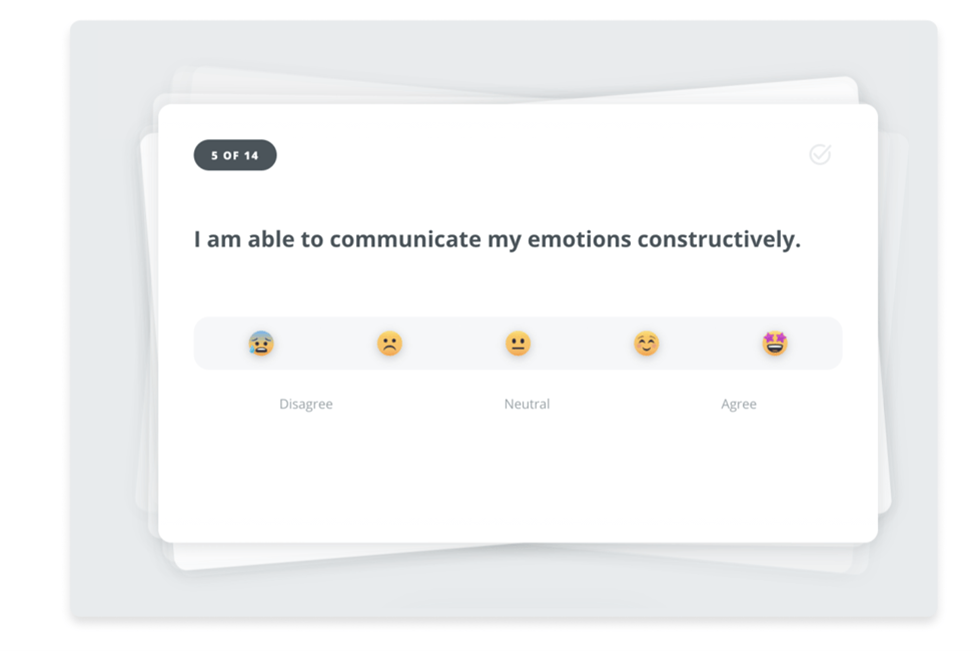
Employee Engagement Questionnaire vs Survey
An employee engagement questionnaire focuses more on specific aspects of the work environment, such as opportunities for growth and development, work-life balance, and team dynamics.
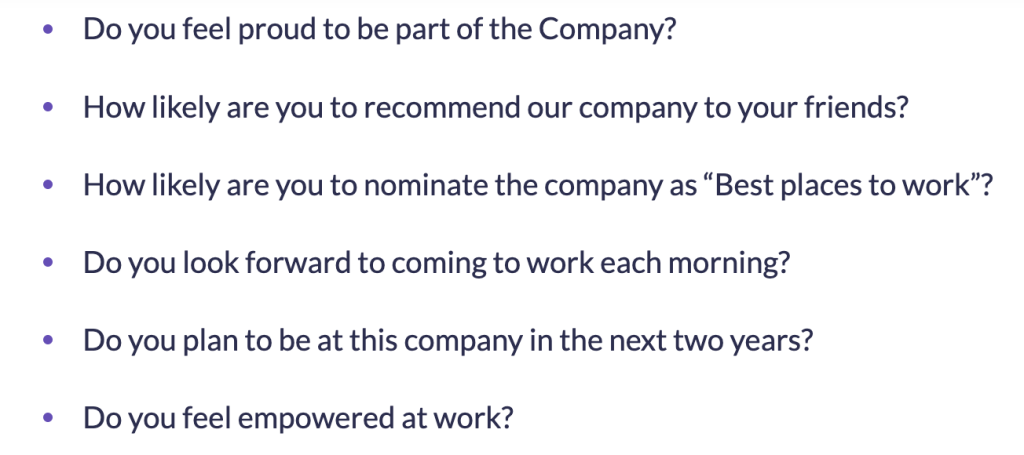
An employee engagement survey measures overall employee engagement, considering factors like motivation, dedication, and job satisfaction.
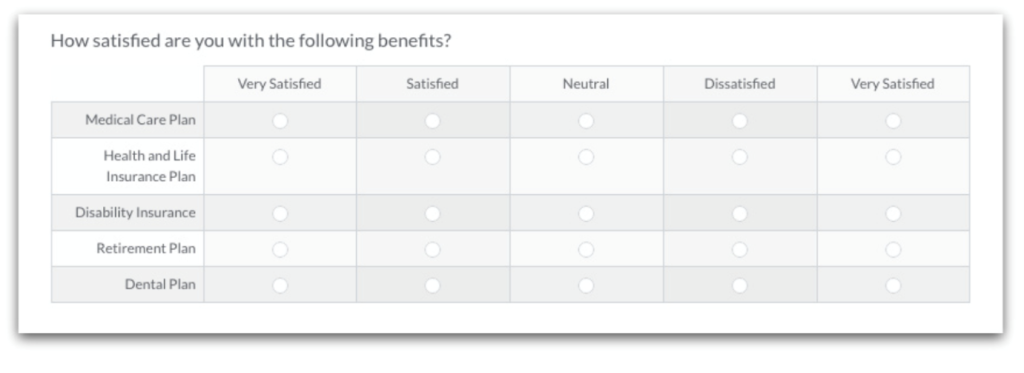
When designing research projects or gathering data about a particular objective, it’s useful to understand the various examples of questionnaire vs survey. It is common to use both approaches to collect data, but their administration, structure, and purposes differ greatly.
ALSO READ: Top Employee Engagement Platforms for 2023
Choosing the Right Method for Your Research
Your decisions about the research methods to use can have a significant effect on the credibility and validity of your results. The research topic, the data to be collected, the individuals to be worked with, and the available resources are all factors to think about when deciding on a research strategy.
The selected approach will depend on the nature of the research being conducted and its specific goals. For instance,
- Suppose you’re interested in learning about a particular demographic’s worldview. In that case, you can choose to do a qualitative study using interviews or focus groups.
- Suppose you need to acquire numerical data to evaluate a hypothesis. In that case, one option is to employ a quantitative research approach, such as a survey or experiment.
Due to the need for unique equipment or expertise, certain research methods may be more costly or time-consuming than others. The consideration of ethics is also crucial.
Before commencing your investigation, ensure you have all the necessary permissions and followed all the correct processes.
Factors You Should Consider For Your Research
How do I choose which method works best? The following factors can decide questionnaire vs survey in research:
- Purpose: The first factor to consider is the purpose of the research. Surveys are better suited to gathering general information and opinions from a large sample of respondents than questionnaires.
- Sample Size: The sample size for questionnaires is better suited for smaller, more focused samples. Surveys typically use large-scale research with plenty of participants.
- Timeframe: The survey timeframe is quicker and more efficient, while questionnaires take longer to administer and analyze.
- Complexity: Surveys are better suited for straightforward research questions, while questionnaires are more complex and detailed.
- Resources: The availability of resources is essential. You may require more resources, such as personnel, technology, and budget, than questionnaires for surveys.
- Data Analysis: The last factor to consider is the method of data analysis. Surveys typically require more advanced data analysis techniques, while questionnaires can often be analyzed more simply.
Conclusion
It comes down to choosing the right tool for the job when choosing between questionnaires and surveys. While questionnaires are like precision knives, perfect for extracting specific information, surveys are more like fishing nets, great for casting a wide net and gathering a large sample of opinions.
A good choice depends on factors such as the purpose, the sample size, the timeframe, the complexity, the resources, and the data analysis.
Researchers can increase their chances of collecting and interpreting data successfully by selecting the appropriate tool. So, knowing the distinctions between questionnaires and surveys is essential in conducting successful research, whether you’re an experienced researcher or a curious first-timer.
Interested In Sending Your Own Surveys?
Explore our solutions that help researchers collect accurate insights, boost ROI, and retain respondents using pre-built templates that don’t require coding.




